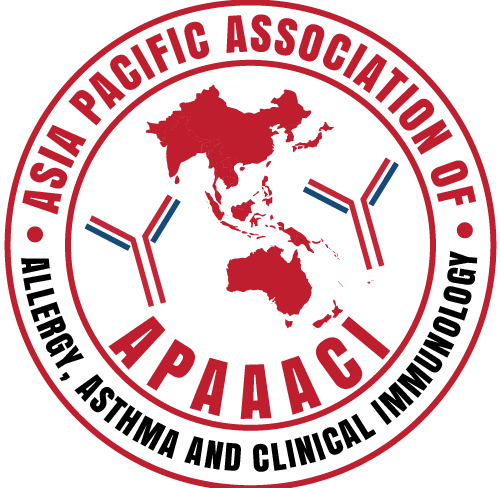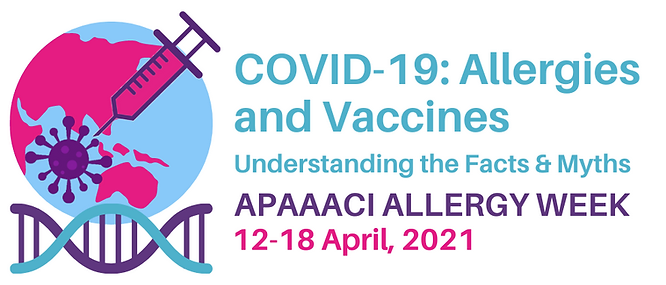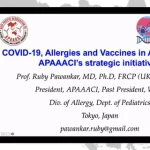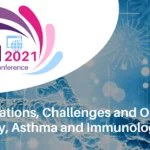In March 2020 the WHO declared a global COVID-19 pandemic. Despite multiple public health measures with various degrees of enforcement, the pandemic progressed resulting in a high incidence of community infections and deaths worldwide.
Prof Ruby Pawankar, President, APAAACI stated that: “APAAACI like other global bodies has been working with its national member societies in tracking the pandemic in the Asian Pacific region through regional surveys and is providing guidance on the management of allergies, via alternative platforms like tele-health, on-line continuing medical education and webinars, and public education.”
Prof. Pawankar also stated that: ”Vaccines save millions of lives each year. Vaccines work by training and preparing the body’s natural defences – the immune system – to recognize and fight off the viruses and bacteria they target . After vaccination, if the body is later exposed to those disease-causing germs, the body is immediately ready to destroy them, preventing serious illness and creating “herd immunity” within the community.
After considerable efforts by scientists, global regulatory bodies and the WHO, we now have vaccines which holds the key to the road to recovery and normalcy. As of 18 February 2021, at least seven different vaccines across three platforms have been rolled out worldwide. Vulnerable populations and front-line workers in all countries are the highest priority for vaccination.
Vaccine hesitancy is real, in particular concerns on safety and efficacy following rapid development and reports of allergic reactions / adverse events in North America and the United Kingdom. Singapore was the first country in the Asian Pacific region to roll out the COVID-19 vaccine. Prof. Thong, APAAACI Board member stated that “The key strategy in Singapore’s vaccination rollout during a period of low community prevalence of COVID-19 infections has been to use a calibrated, risk-stratified approach with increased public awareness and education to all sectors of the community”.
The APAAACI together with its national member societies, under the guidance of WHO, conceived the APAAACI Allergy Week to promote better understanding of the science of vaccinology, safe implementation of pandemic vaccine access programs, and risk stratification and prevention of vaccine allergic reactions. Improved physician understanding will enhance public awareness and education of vaccine benefits and safety. This will be key to the reopening of borders within Asia and resumption of scientific, economic and cultural exchanges.



